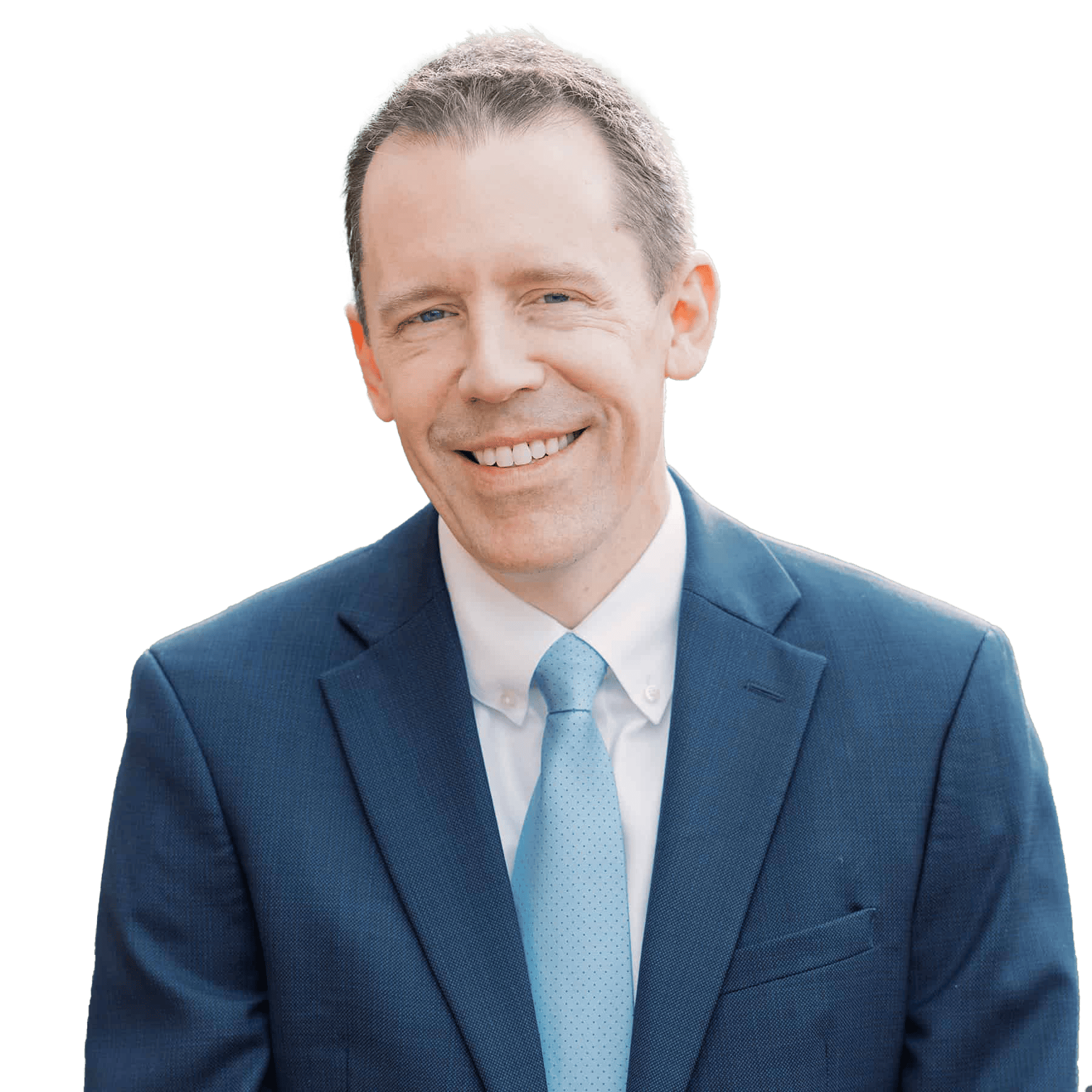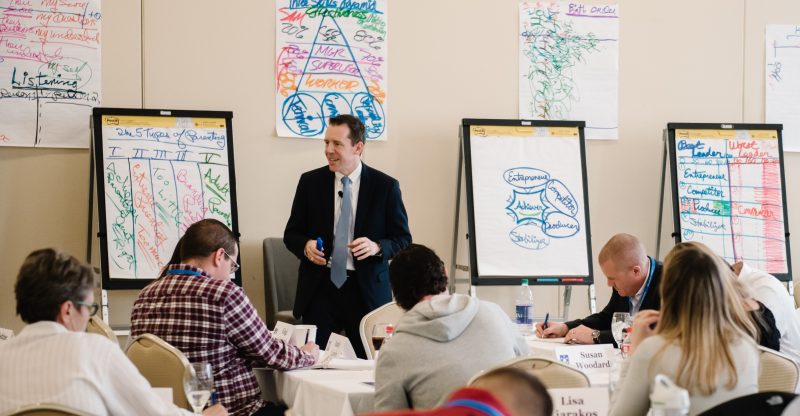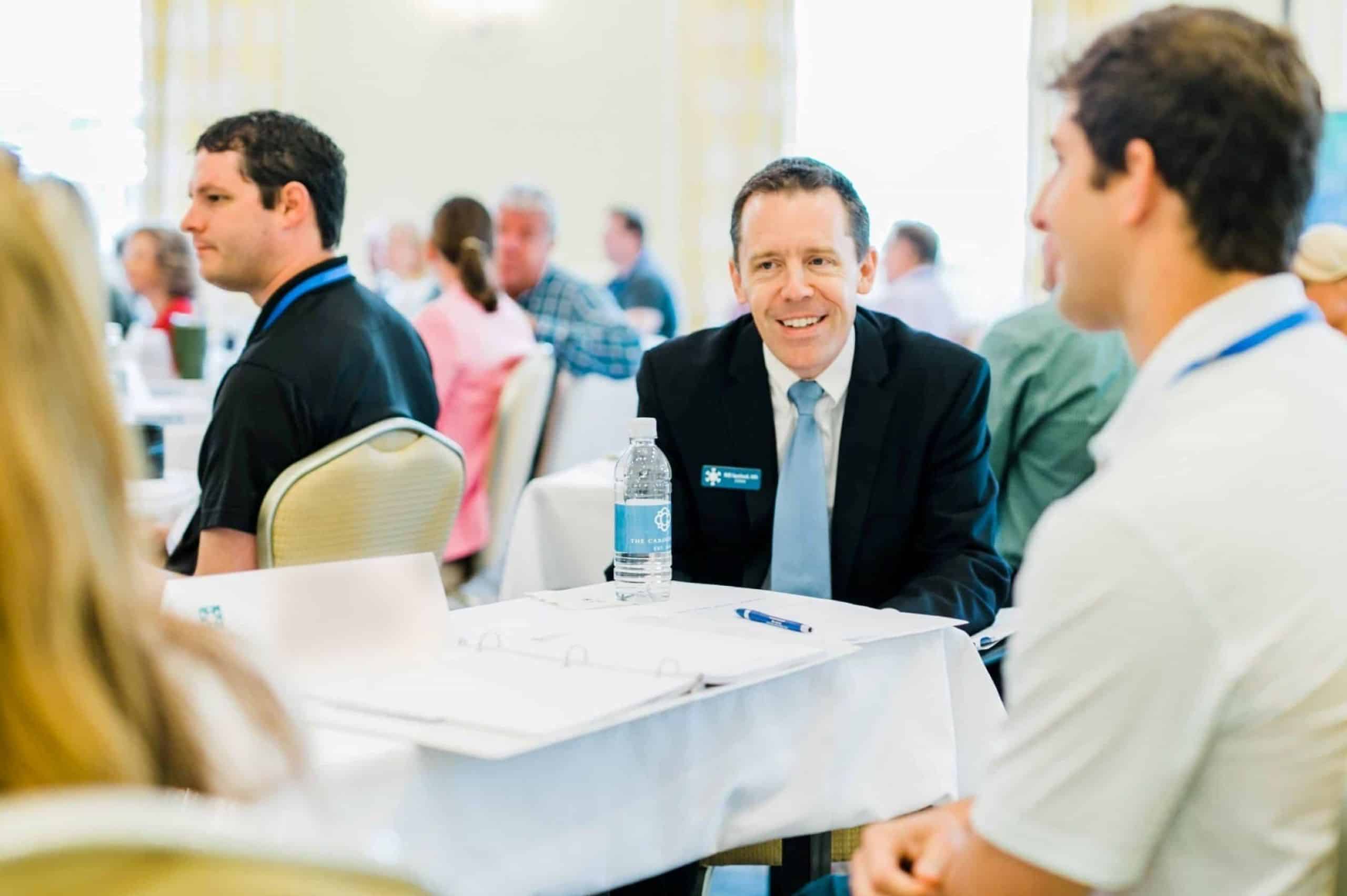TRAINING SPOTLIGHT
From Resolving Conflict to Building Leaders
Bill Sanford
Senior Executive Leadership Trainer

TRAINING SPOTLIGHT
From Resolving Conflict to Building Leaders
Bill Sanford
Senior Executive Leadership Trainer
BILL SANFORD
Senior Executive Leadership Trainer
Bell Leader since 2008
Email Bill
Two areas of study that you may not automatically put together—conflict resolution and leadership development—have more in common that you might think. We recently had an opportunity to sit down with Bill Sanford, Senior Executive Leadership Trainer, who has a background in both fields and was able to connect the dots on how many of the same skills used in resolving conflicts are also extraordinarily helpful in developing leaders.
Here’s what he had to say about his work in both disciplines and the connections he sees between the two.
Q. Bill, you have advanced degrees in both comparative politics and conflict resolution; can you tell us what got you interested in the field of conflict resolution?
A. It started when I was little, and I saw my amazing and brilliant older sister be on the receiving end of some bullying at school. And there were certainly times when I felt a little “on the outside”, looking in myself, wondering where I fit. I think those personal experiences got me attuned to social dynamics and how people treat each other. And I think part of it was growing up in the “Sesame Street generation,” and having that norm or expectation that everybody ought to be able to get along and live and work together, no matter their backgrounds or other differences. That’s probably part of what got me focused on how groups of people relate to one another. I remember watching all the weekly news and politics shows with my dad, and seeing the “spinning” and blaming – and all I could think was that there had to be better ways of solving important issues and getting things done. And the more I learned about big social and political issues, I realized how complex they were and that no one person or one side had ‘the answer.’
Q: How did your work in conflict resolution eventually lead you to connect with Bell Leadership?
A: The first part of my career was focused on international conflict, ethnic conflict, democratization, things of that nature. I lived and worked overseas for a while before returning to work for a think tank in Washington, DC. Then, later, as I was completing my 2nd Master’s degree, I started a consulting and training business focused on conflict, teamwork, and leadership. I developed a bit of a specialty working in sports. I was lucky to work with coaches and players in the NBA and baseball’s minor leagues, the Atlantic Coast Conference (ACC), and a variety of college teams, including the women’s soccer and field hockey teams here at Carolina.
One day, a colleague and mentor of mine asked me, “Do you know Jerry Bell?” Well, of course I knew of Dr. Bell –I’d sent copies of The Carolina Way to several clients! But I didn’t know Dr. Bell personally. “Well,” [my colleague] said, “I think he might be interested in some of the things you are working on. Why don’t you reach out to him?” And so, I did – one thing led to another, and three or four months later it was clear to both of us that it just made sense for me to join Bell Leadership.
Q: Now that you’ve been at Bell for over 15 years, what do you think was most helpful from your initial conflict resolution work in preparing you to develop leaders and work with organizations the way you do now?
A: I think it helped prepare me to deal with a lot of complexity. In most of the conflicts I worked on, there were multiple issues, multiple stakeholders – just a whole lot going on. And so, how do you deal with all of that and help come to some mutual understanding, negotiate tradeoffs, generate creative solutions, and build relationships so solutions would last?
Another part is the ability to get past what people are saying and even what they truly think a situation is about to discover what’s really going on at the heart of it. So, today, we have clients calling and asking for leadership programs or solutions, saying what they think they need and want. “We need a teambuilding session.” And that’s maybe what it looks like on the surface, but when we listen, ask questions, start talking to more people, we might find that, in order to get at the root cause of it and for the solution to really stick, they actually need something else first. It might be that they need specific skills, or that a few individuals need feedback, or maybe there’s a team dynamic to resolve, or who knows? But it’s that ability to go deeper beneath the surface to the root causes.
Q: Are there other skills or concepts you’ve taken from conflict resolution that might change the way you work with people as they develop as leaders?
A: Well, listening, for sure. In order to resolve a conflict or build a relationship, there has to be great listening. And listening is essential in building and working with leaders.
The other thing that comes to mind is the humbling realization that my ideas and possible solutions don’t really matter unless the client or the parties in the conflict are ready to hear them and want to hear them. It goes back to Dr. Bell’s principle that “people commit to what they help create.” In a conflict, the parties involved have to own the solution because they’re the ones who must implement it. Ideally, they need to develop it or at the very least, they need to buy in, and believe in it. It's not about a mediator or leadership coach saying, “Here’s what you need to do.” Now, you can get to that point eventually, if you listen well enough, build your understanding, and they trust you; you can earn that right where they turn to you and say, “What do you think? What are your ideas?” But anything before that is kind of wasted.
Q: Is there anything you’ve learned working at Bell and building leaders, any concepts or principles that you think would be especially beneficial for those working in conflict resolution?
A: It’s interesting, at the end of my capstone course in grad school, we had to design a comprehensive, integrated conflict resolution model and design a curriculum for conflict resolution professionals. And what I remember most about that was highlighting the need for intervenors to know themselves – “Who am I?” Understanding your needs and values and strengths and weaknesses – basically what we call “Self IQ.” And, gosh, I have learned so much more about that here at Bell Leadership! The more you know yourself, the more effective and strategic you can be working with others – the less likely you will be to stumble into traps of your own making.
Q: In thinking about the future of this work, and Bell and your role for the next decade, what are you most excited about?
A: Well, first, I’ll share that another decade still feels like just the start. I’ll be 25 years in at Bell at that point, but my goal is to serve for many, many more. What I am most excited about is the opportunity to keep impacting more people and more organizations – to keep expanding the scope and reach of our work. It’s such a thrill and so rewarding to hear from clients who share something that they used that really made a difference in their business or team or family. The opportunity to be a part of more life-changing experiences for more people, helping our world learn to work harder, smarter, and better together – that’s what keeps me going.
Watch Bill In Action
Recognized as an impactful trainer, stand-out speaker and insightful coach, Bill Sanford embodies a unique combination of substantial credibility with a down-to-earth approach. Bill has worked with executives, leadership teams and organizations globally, developing business relationships that span the decades. Companies such as The Home Depot, Radio Flyer, Extraco Banks, East West Partners, Grady-White Boats and Heartland Dental repeatedly call on Bill to design and facilitate programs that lead to higher organizational performance.
BIO & FUN FACTS

VIDEO SPOTLIGHT
Hear How Bill Impacts Clients and their Organizations
“Bill is an excellent presenter and blends with our team so seamlessly that he feels like one of us. He understands our dynamic and is able to coach to the culture that we have very well.“
Aleta Levesque
Practice Transition Representative
Heartland Dental
“Bill knows the material and can relate the topics to your daily business life and gives you insight and ways to change or do some things different. Bill grabs your attention to think and ask questions.”
Shawn Dudley
Human Resources Business Partner
Boddie Noell
“Bill Sanford is an exceptional speaker and very knowledgeable. I would recommend his courses to anyone looking to improve their leadership skills.”
Ross Wuestenfeld
VP & General Manager – OEM Solutions
AAR Corporation


 CLICK TO READ Q&A WITH BILL
CLICK TO READ Q&A WITH BILL